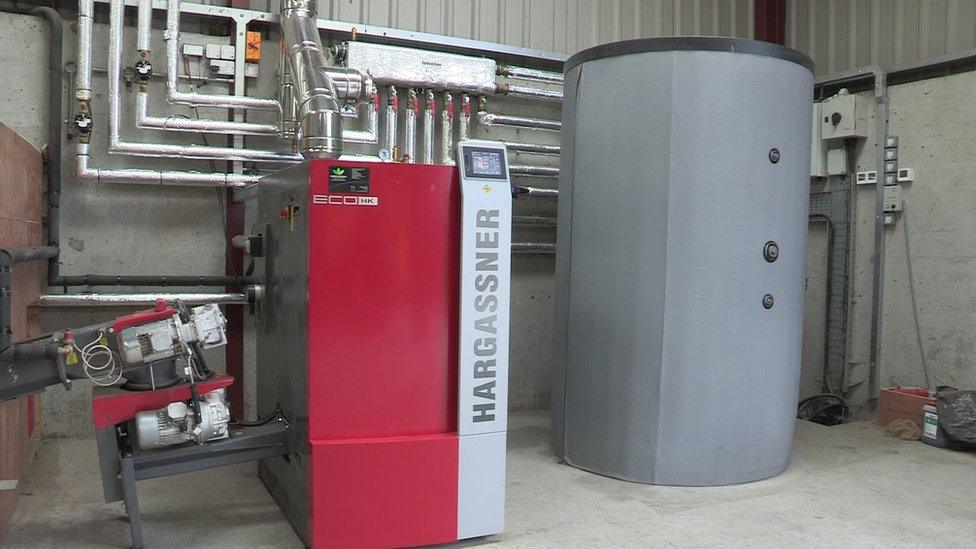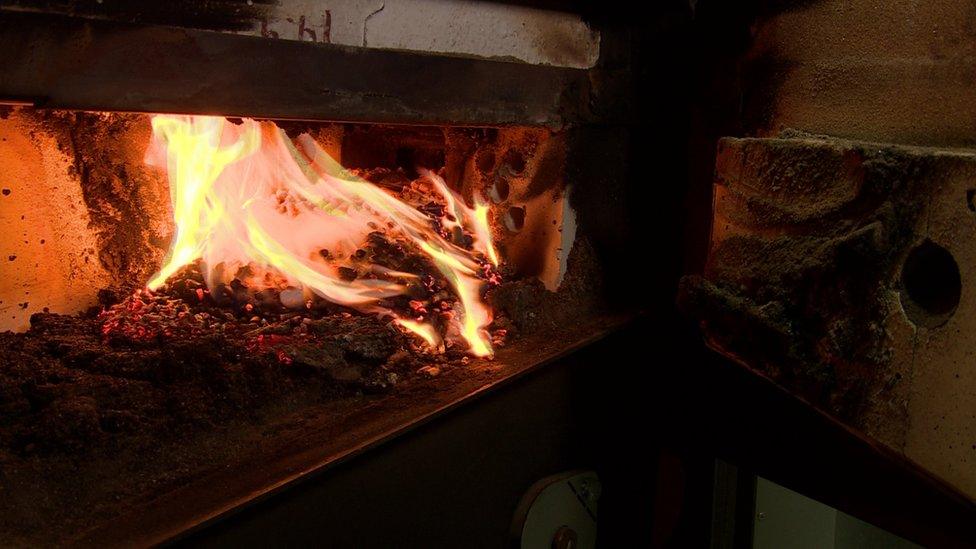No increased subsidy for RHI boiler owner business expansion
- Published

The RHI scheme was set up in 2012 to encourage people to move away from fossil fuels
RHI boiler owners will not have their subsidies increased to account for cash they spent expanding businesses on the back of the scheme.
Earlier this year, MPs held an inquiry into deep cuts to payments.
They recommended the rates be reviewed, saying 1,100 firms in Northern Ireland got a "raw deal".
Many expanded their companies on the promise of a 20-year guaranteed income from the subsidy, which encouraged banks to loan.
But the payments were later reduced to rein in runaway costs.
The 2019 cuts - which are being challenged in the courts - meant most payments fell from £13,000 a year to £2,200.
An equivalent scheme in Great Britain will pay out at least £5,300, meaning a difference of tens of thousands of pounds over the 20-year term of the scheme.
'Beyond bounds of tariff'
The Northern Ireland Affairs Committee said tariffs should be reviewed to account for firms' expansion investment.
But the Department for the Economy has said that will not happen.
In its response to the inquiry, the department said investment decisions were "beyond the bounds of the tariff".
Officials said to change that would contravene EU law on financial support for business.
MPs said they were disappointed with the response and that it was a "missed opportunity" to eliminate unfairness.

A biomass boiler, similar to those owned by some RHI scheme claimants
The Department for the Economy has promised to commission an independent review of the tariff to take into account changing running costs and to compare the Northern Ireland scheme with similar ones in Great Britain and the Republic of Ireland.
It also has secured £12m over three years for a buyout fund to facilitate those who wish to exit the scheme.
An organisation which represents many boiler owners said government's response was "cold comfort for those who believe they were sold a pup" by the department.
It said the current situation proved Economy should not be put in charge of using £390m of unspent and available Treasury budget to launch a fresh renewable heat initiative.
There had been warnings that firms hit hard by the subsidy cuts would abandon the scheme and revert to fossil fuels.
But the department said that in the three months to June 2019, after long-term subsidy cuts took effect, no boiler owners had left the scheme.
It said it had also looked closely at the Republic's scheme and concluded there was not enough evidence to merit a complaint to the European Commission that it breached state aid rules.
- Published30 June 2019

- Published19 March 2019

- Published7 November 2017
